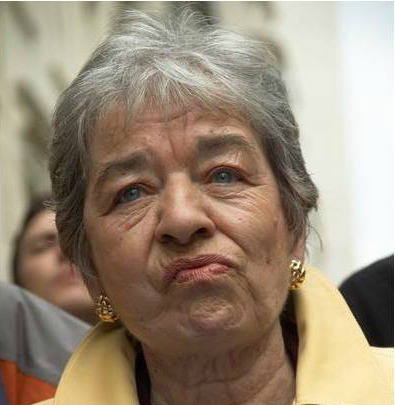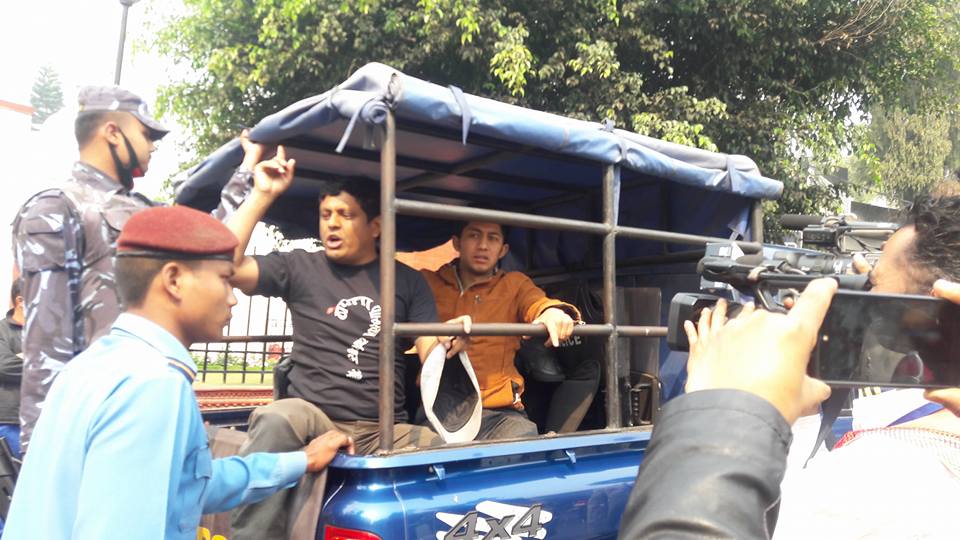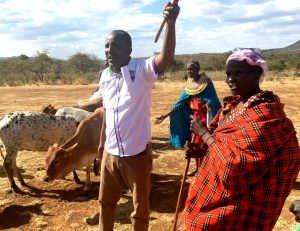Vision and History Catherine Beard, an English Gypsy leader, learned her advocacy the hard way after being evicted from her home. The Advocacy Project believes that civil society can be a powerful force for justice – particularly when it is led by people who have been directly affected by the wrongs they are seeking to right. Most, but not all, AP partner organizations were founded, or are led, by individuals like Catherine Beard and Ram Bhandari (photos) who emerged from a marginalized community and have directly experienced discrimination. This gives them enormous credibility and motivation. Our pages are a testimony to these remarkable people. They are, truly, AP’s natural stakeholders. We are ready to support any community-based organization that works for peace and human rights and is representative of a marginalized community, although we prioritize the following themes: women; children; conflict; disability; environmental justice; and minority/indigenous rights. Our 2019 focus is on women and girls. We do not seek out new partners so as to avoid imposing an agenda, but anyone can find us and in this connected age and many do. As of January 2019 AP had worked with 118 communities.  After his father disappeared in Nepal, Ram Kumar Bhandari became an inspiring advocate for other grieving families and led protests to demand justice AP can only take on one or two new partners in any year, but we keep in touch with past partners and help when we can. This can mean paying website hosting fees for the Afghan Women’s Network or using our non-profit status to channel donations to the Palestinian House of Friendship. We offer several services to partners in the form of Technical Support. The most intense period will be the summer, when we deploy Peace Fellows to volunteer with partners. A typical Fellow will have professional experience, a passion for IT, and be studying for a Masters degree. We send Fellows for as long as it is useful. (BOSFAM in Bosnia took 14 Fellows between 2003 and 2015.) By taking a Fellow, partners receive ten weeks of technical support from an accomplished young professional, cement the relationship with AP, and strengthen their organization. They are not expected to cover the Fellow’s cost but we do ask that they mentor their Fellow, support their research, make sure they are safe at all times, make the fellowship experience as rich as possible, and report back to us.  Hilary Bukuno, the founder of CPI Kenya, is from the Gabra tribe in Samburu County, Kenya. This gives him added credibility as an advocate for peace. In recent years we have begun to place more emphasis on strengthening partner organizations, particularly those that are making the transition from a loose association of friends to a professional organization. This is offered in the spirit of partnership and we gain as much from partners as they do from us. We also ask partners to identify our flaws, and help to correct them! We understand that most Fellows are only deployed for 10 weeks and are now exploring ways to support partners year-round. One possibility is for the partner to recruit a graduate student from a local university to work shoulder to shoulder with our Fellow as an AP Associate in the summer and then continue when the Fellows leaves. We currently work with seven associates. This has the added benefit of extending our fellowship program to students from the Global South. We are also developing tech modules which will be available year-round. Eventually we hope that all AP partners – past and present – will have pages on our site. For the moment we are focusing on those that work with us on a startup or campaign, are making an advocacy quilt, or are hosting a Peace Fellow. Each page will describe the organization’s history and achievements since working with AP. We welcome feedback from actual and potential partners. To apply for partnership or request a Peace Fellow please contact us here. |
